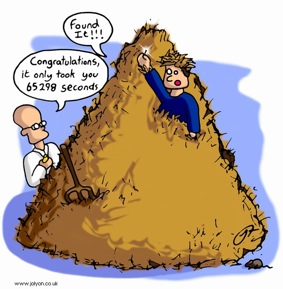IndIGO Mock Data Challenge for Students
The IndIGO consortium is organizing a mock gravitational-wave (GW) data challenge for students. Simulated data of a future GW observatory called "Indigo" will be provided containing simulated GW signals from inspiralling binary black holes
(GW) data challenge for students. Simulated data of a future GW observatory called "Indigo" will be provided containing simulated GW signals from inspiralling binary black holes . Participants will be asked to detect these signals using the detection algorithms that they have developed, and to report the recovered parameters of the black-hole binaries.
. Participants will be asked to detect these signals using the detection algorithms that they have developed, and to report the recovered parameters of the black-hole binaries.
Participants are encouraged to form groups, and to get support from their teachers and other senior members of their home institutions. Winning groups will be considered for internships and summer research programs at various partner institutes of the IndIGO consortium (in India and abroad). An article summarizing the analysis results (with all participants as co-authors) is also being planned.

GWs are tiny ripples in the geometry of spacetime that propagate with the speed of light. Extracting the GW signals deeply buried in the noisy data collected by GW observatories is a nontrivial data-analysis problem. Sensitive signal-processing techniques have been developed in order to address this "needle in a haystack" problem. Here a document providing a simple introduction to GW data analysis.
a document providing a simple introduction to GW data analysis.
Participants are encouraged to form groups, and to get support from their teachers and other senior members of their home institutions. Winning groups will be considered for internships and summer research programs at various partner institutes of the IndIGO consortium (in India and abroad). An article summarizing the analysis results (with all participants as co-authors) is also being planned.
Gravitational-wave data analysis
Pic. http://food-hub.org
GWs are tiny ripples in the geometry of spacetime that propagate with the speed of light. Extracting the GW signals deeply buried in the noisy data collected by GW observatories is a nontrivial data-analysis problem. Sensitive signal-processing techniques have been developed in order to address this "needle in a haystack" problem. Here
Registration
- Registration is now open. In order to register, please send an e-mail to mdc2011 (at) gw-indigo.org containing the following information.
- Names of the participants, e-mail addresses, participating institutions.
- Use the following subject line: REGISTRATION: Institution name (Participant name 1, Participant name 2, ...).
- Here is an example:
To: mdc2011 (at) gw-indigo.org Sub: REGISTRATION: University1 (Name1, Name2, Name3) -- Participants: 1. Name1 <myemail1@institution.ac.in> 2. Name2 <myemail2@institution.ac.in> 3. Name3 <myemail3@institution.ac.in> Institution: 1. University1, Location. 2. University2, Location.
- All participants are also requested to sign up for the participants mailing list here
 . A lot of the future announcements will appear in this mailing list. Also this list can be used for technical discussions among the participants.
. A lot of the future announcements will appear in this mailing list. Also this list can be used for technical discussions among the participants.
The data set
- The data set contains a few hours of simulated data from the future GW observatory "Indigo". The sensitivity of this detector is assumed to be comparable to that of the current LIGO detectors (4km).
- Data will be in a binary format called 'GW frame format'. This is the standard format used to store GW data adopted by the GW observatories worldwide. Tools will be provided to read the data into Matlab/Octave/Python.
- The data contains a few tens of simulated GW signals from inspiralling binary black holes. The signals are simple 'chirps' described by one physical parameter (called 'chirp mass'), apart from the time of arrival at the detector and corresponding phase.
- The most sensitive method to detect these signals is 'matched filtering', where the data is cross-correlated with theoretically modelled 'templates' of the expected signals. We will provide simple functional forms of the expected signals, which can be used to generate templates. Alternatively, simpler techniques such as 'excess power' algorithms can be used to detect the louder signals.
- Here
 is a document providing an introduction to GW data analysis.
is a document providing an introduction to GW data analysis.
Timeline
- 1 Aug 2011: Registration starts.
- 18 Aug 2011: Availability of the mock data. link

- 24 Aug 2011: Availability of the data analysis primer. link

- 30 Oct 2011: Registration closes.
- 15 November 2011: Submission of analysis results (now extended to 15 Dec 2011).
- 15 January 2012: Announcement of winners.
- 31 March 2012: Article summarizing the analysis results.
